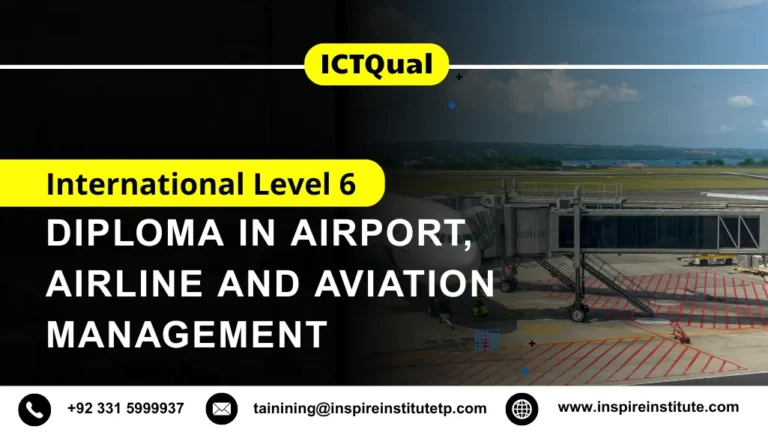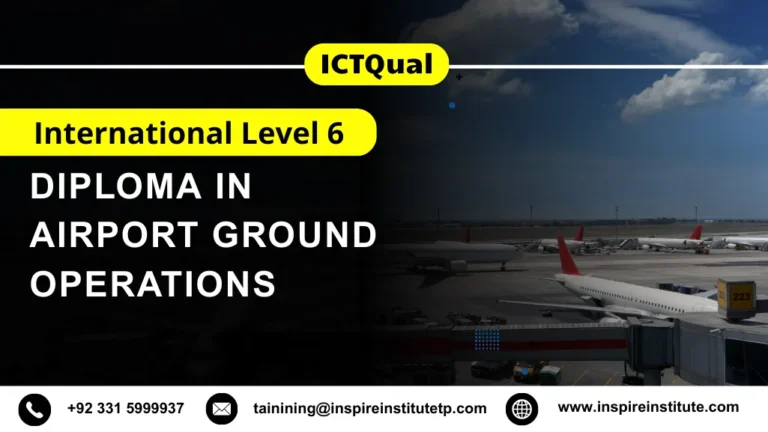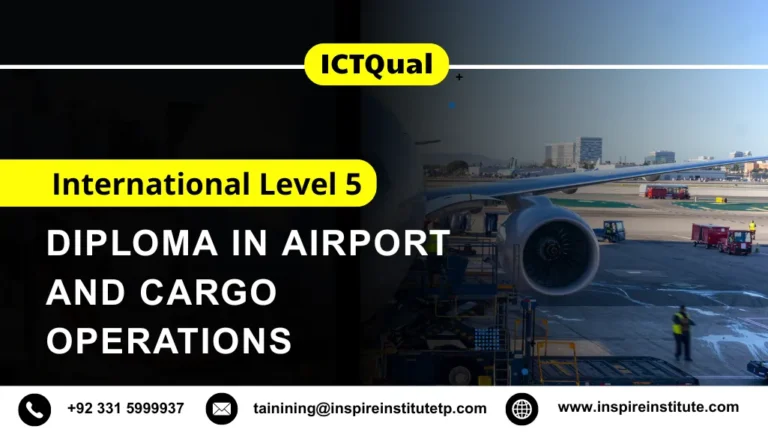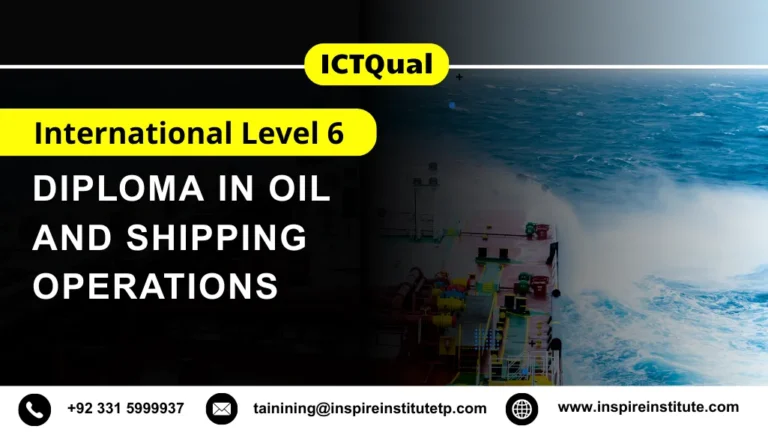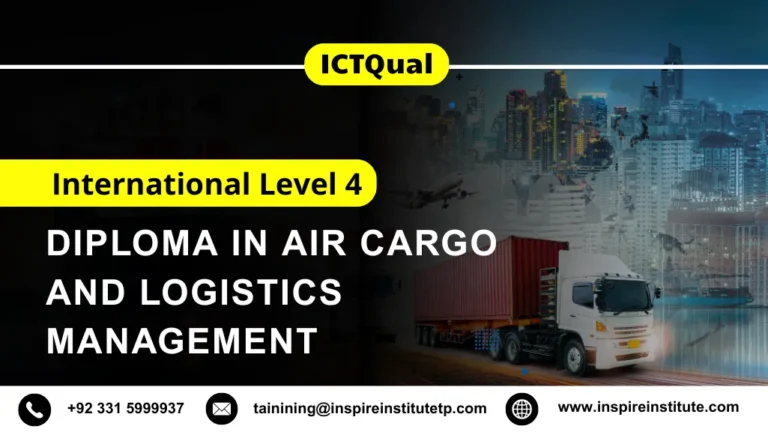ICTQual AB Level 6 Diploma in Instrumental Quality Assurance and Quality Control QA/QC
The ICTQual AB Level 6 Diploma in Instrumental Quality Assurance and Quality Control (QA/QC) is a specialist advanced programme that prepares professionals for leadership in laboratory and industrial quality environments. This Assurance emphasises instrumental quality assurance and practical analytical instrumentation skills, aligning academic theory with regulatory expectations. Learners will engage with contemporary QA/QC certification principles and the operational standards that govern quality assurance management.
The purpose and scope of the diploma focus on developing technical mastery and managerial judgment in instrumental QA/QC training and practice. Core modules cover calibration and validation, method validation, instrument maintenance, and quality systems documentation to ensure long-term data integrity. Emphasis on QA/QC certification pathways means students learn both the practical steps for compliance and the audit-readiness processes required by regulators and clients.
Learners will acquire hands-on competencies with a range of analytical instrumentation common to modern laboratories, including spectrometers, chromatographs, and electrochemical analyzers. Practical workshops and simulated laboratory scenarios teach instrument operation, troubleshooting, and performance verification, reinforcing calibration and validation best practices.
Why Choose this Qualification
The ICTQual AB Level 6 Diploma in Instrumental Quality Assurance and Quality Control (QA/QC) is a globally recognized qualification that equips learners with advanced technical expertise, analytical precision, and leadership capability in the field of instrumental QA/QC. This Assurance is designed for individuals who aim to advance their careers in quality assurance, laboratory management, and process improvement.
Key Reasons to Choose This Qualification
Globally Recognized and Industry-Relevant Qualification
- Developed under international standards, ensuring alignment with global QA/QC best practices.
- Accepted by a wide range of industries, including pharmaceuticals, food processing, oil & gas, and manufacturing.
- Enhances career mobility by providing a qualification recognized by employers across various regulated sectors Assurance .
- Validates professional credibility and demonstrates your commitment to maintaining quality and compliance.
- Serves as a strong foundation for further studies or certifications in quality assurance and management Assurance .
Comprehensive Knowledge of Instrumental QA/QC Systems
- Provides an in-depth understanding of instrumental quality assurance principles and quality control methodologies.
- Covers critical topics such as calibration, method validation, and analytical instrumentation.
- Teaches how to design and manage effective QA/QC systems to meet international compliance requirements Assurance .
- Enables learners to interpret laboratory data accurately and identify process deviations.
- Equips you to develop and monitor quality procedures across industrial and laboratory environments.
Hands-On Practical Experience
- Includes extensive practical sessions that simulate real-world QA/QC laboratory scenarios.
- Trains learners to use, maintain, and troubleshoot advanced analytical instruments.
- Reinforces concepts through laboratory-based experiments and applied projects.
- Develops proficiency in performing calibration and validation procedures to industry standards.
- Bridges the gap between academic knowledge and workplace application through experiential learning Assurance .
Development of Analytical and Technical Skills
- Strengthens data analysis capabilities using statistical process control and root cause analysis techniques.
- Builds skills in quality monitoring, deviation tracking, and corrective action planning.
- Encourages analytical thinking and evidence-based decision-making in QA/QC operations.
- Enables you to identify quality trends and propose effective improvement strategies.
- Equips learners to manage uncertainty and maintain precision in analytical reporting.
Leadership and Quality Management Competence
- Develops managerial skills for leading QA/QC teams and quality departments.
- Covers principles of quality leadership, communication, and decision-making.
- Teaches how to implement continuous improvement systems in line with ISO and international QA standards.
- Equips learners to conduct internal audits and ensure readiness for external inspections.
- Builds the ability to coordinate with regulatory bodies and stakeholders effectively.
Focus on Data Integrity and Compliance
- Highlights the importance of maintaining data integrity in laboratory and industrial settings.
- Teaches global compliance practices in documentation and electronic record management.
- Guides learners on implementing audit trails, traceability, and error prevention systems.
- Ensures understanding of Good Laboratory Practice (GLP) and Good Manufacturing Practice (GMP).
- Prepares learners to comply with international standards such as ISO 9001, ISO 17025, and ISO 22000.
Career Advancement and Professional Growth
- Opens doors to senior-level QA/QC, inspection, and quality management roles.
- Enhances employability in global markets where instrumental QA/QC expertise is in high demand.
- Strengthens your professional profile with a Level 6 diploma recognized for its academic and practical rigor.
- Provides opportunities to transition into consultancy, auditing, or technical leadership positions.
- Builds confidence to contribute effectively to quality-driven organizational cultures.
Flexible, Assignment-Based Learning Approach
- Designed for working professionals seeking career growth without interrupting employment.
- Allows learners to complete assessments through assignments rather than exams.
- Encourages independent study and research-based learning for deeper understanding.
- Promotes self-paced learning under expert academic supervision.
- Balances theoretical study with applied skill development for maximum learning outcomes.
The ICTQual AB Level 6 Diploma in Instrumental Quality Assurance and Quality Control (QA/QC) offers a transformative learning experience that integrates technical precision, analytical intelligence, and professional leadership. By choosing this qualification, learners gain measurable skills, recognized credentials, and the confidence to perform effectively in global QA/QC environments.
Course Overview
UK based Qualification
Study Units: 6 Units
Evidence & Assignment Based
Course Level: Level 6
Qualification Structure
This qualification, the ICTQual AB Level 6 Diploma in Instrumental Quality Assurance and Quality Control QA/QC, consists of 6 mandatory units.
- Strategic QA/QC Planning and ITP Integration in Large Projects
- Supervisory Use of Checklists and Multi‑Level Inspections
- Material Receiving, Preservation, and Non‑Conformance Management
- NEC/NEMA Standards for Complex Installations (Cable Trays, Grounding, Conduits)
- Instrument Elements (Pressure, Flow, Temperature, Level) – Calibration and Compliance with Aramco Standards
- Professional Practice in Loop Checking, Testing, and Commissioning for Industrial Systems
Who Should Take This Course
The ICTQual AB Level 6 Diploma in Instrumental Quality Assurance and Quality Control (QA/QC) is designed for professionals seeking to advance their expertise in quality assurance, laboratory management, and industrial quality control. This qualification is ideal for individuals who aim to gain technical mastery of instrumental QA/QC systems, enhance analytical and leadership skills, and meet international compliance standards. The course equips learners with practical experience, regulatory knowledge, and managerial competence, ensuring they are well-prepared for senior roles in diverse industries such as pharmaceuticals, manufacturing, food safety, and environmental monitoring.
This Course is Suitable for
Laboratory Technicians and QA/QC Analysts
- Gain advanced knowledge in calibration, validation, and analytical instrumentation.
- Develop hands-on skills for operating, maintaining, and troubleshooting laboratory instruments.
- Enhance data analysis capabilities to interpret results accurately and ensure compliance.
- Learn to implement quality control procedures according to international standards.
- Build competence in documenting laboratory activities and maintaining data integrity.
Quality Assurance Managers and Supervisors
- Acquire leadership skills for managing QA/QC teams effectively.
- Learn to design, implement, and monitor quality assurance management systems.
- Gain expertise in conducting internal audits and preparing for regulatory inspections.
- Enhance decision-making abilities using statistical process control and root cause analysis.
- Strengthen knowledge of regulatory frameworks, ISO standards, and audit-readiness protocols.
Production and Process Engineers
- Understand quality control methodologies and instrumental QA/QC principles applicable to production.
- Learn to integrate QA/QC processes into manufacturing and industrial workflows.
- Develop skills for analyzing process data and identifying deviations.
- Gain competence in implementing corrective and preventive actions (CAPA).
- Enhance ability to ensure product quality and compliance with safety standards.
Regulatory Compliance Officers
- Gain comprehensive knowledge of global compliance and data integrity standards.
- Learn best practices for electronic record management and traceability.
- Develop expertise in Good Laboratory Practice (GLP) and Good Manufacturing Practice (GMP).
- Understand regulatory expectations for audit preparation and reporting.
- Strengthen ability to support certification and accreditation processes.
Research and Development Professionals
- Learn to validate analytical methods and ensure reliable experimental results.
- Gain skills in experimental design, calibration, and instrumental analysis.
- Develop capacity to assess data quality and maintain reproducible outcomes.
- Acquire knowledge of quality assurance protocols in R&D laboratories.
- Enhance ability to contribute to innovative product development with quality control oversight.
Technical Consultants and Auditors
- Gain the expertise required to advise clients on QA/QC compliance and instrumentation.
- Learn to conduct external audits and provide actionable recommendations.
- Enhance report-writing skills for regulatory and client documentation.
- Acquire the ability to evaluate quality systems against international standards.
- Develop capacity to support continuous improvement initiatives in client organizations.
Senior Professionals Seeking Career Advancement
- Strengthen leadership and strategic decision-making in QA/QC environments.
- Gain a recognized Level 6 diploma that enhances career prospects and professional credibility.
- Develop advanced skills in quality assurance management and process optimization.
- Acquire practical and measurable expertise in instrumental QA/QC applications.
- Position yourself for senior roles in quality-critical industries globally.
Students and Graduates Aspiring for Specialized QA/QC Roles
- Gain foundational and advanced knowledge in instrumental quality assurance and quality control.
- Learn practical laboratory techniques and analytical instrumentation skills.
- Build competence in data analysis, reporting, and compliance documentation.
- Develop understanding of industry standards and regulatory requirements.
- Prepare for entry into QA/QC roles with strong technical and professional capabilities.
The ICTQual AB Level 6 Diploma in Instrumental Quality Assurance and Quality Control (QA/QC) is suitable for a wide range of professionals and aspirants who wish to achieve measurable expertise in QA/QC, enhance career prospects, and excel in global regulated industries. This qualification equips learners with both practical and theoretical knowledge, enabling them to contribute effectively to quality-driven organizations and lead with confidence in instrumental QA/QC environments. achieving excellence in industrial QA/QC practices and advancing in today’s competitive global market.g a meaningful contribution to innovation, economic growth, and society at both national and global levels.
Course Benefits
The ICTQual AB Level 6 Diploma in Instrumental Quality Assurance and Quality Control (QA/QC) is a highly advanced qualification designed for professionals aiming to master the principles and practices of industrial quality management and advanced instrumentation. This diploma deepens learners’ expertise in QA/QC systems, inspection methodologies, and global compliance frameworks, enabling participants to take strategic responsibility for maintaining precision, reliability, and consistency across industrial processes. Ideal for experienced professionals, quality managers, and aspiring leaders, this qualification combines theoretical rigour with hands-on applications, developing the skills required to lead and innovate in quality assurance and control at a senior level.
Key Benefits of the Course
Specialist Knowledge
- Provides advanced and specialised knowledge of instrumental quality assurance, analytical techniques, and industrial quality management systems.
- Covers complex QA/QC frameworks, calibration management, precision measurement, and performance evaluation aligned with global standards.
- Equips learners to implement quality assurance strategies in accordance with ISO 9001, ISO 17025, IEC, and other international standards.
- Enables graduates to design, analyse, and manage quality processes to enhance system performance and operational excellence.
- Strengthens understanding of QA/QC leadership in high-stakes industrial environments.
Practical Application
- Offers hands-on assignments, simulations, and real-world projects to refine technical and analytical skills.
- Trains learners to perform detailed inspections, calibration audits, and performance assessments with accuracy.
- Develops competence in managing documentation, regulatory compliance, and quality assurance reporting.
- Encourages problem-solving and process evaluation to minimise errors and optimise system reliability.
- Bridges theory and industrial practice for measurable improvements in operational efficiency.
Recognised Qualification
- UK-accredited and internationally recognised, ensuring professional credibility worldwide.
- Respected by employers across oil & gas, manufacturing, power generation, construction, and automation sectors.
- Demonstrates advanced QA/QC proficiency, leadership capability, and compliance expertise.
- Enhances employability and access to senior technical or managerial positions.
- Provides a foundation for further academic or professional progression in QA/QC leadership.
Flexible Learning Pathway
- Designed to accommodate working professionals and full-time students through an assignment-based structure.
- Enables self-paced learning while integrating professional experience with academic guidance.
- Offers comprehensive support from expert tutors and access to digital learning resources.
- Encourages independent study, critical evaluation, and applied knowledge transfer.
- Balances theoretical learning with practical skill development for measurable competency gains.
Evidence-Based Training
- Focuses on data-driven quality management practices using analytical instruments and statistical tools.
- Trains learners to interpret quality data, detect deviations, and implement corrective actions.
- Enhances proficiency in both quantitative and qualitative analysis for robust QA/QC processes.
- Develops the ability to maintain compliance and implement continuous improvement strategies.
- Ensures graduates can apply evidence-based decision-making to complex industrial quality challenges.
Career Development
- Prepares learners for senior technical and managerial roles such as QA/QC Manager, Quality Engineer, Inspection Coordinator, or Process Improvement Specialist.
- Equips graduates to manage high-level responsibilities including process validation, auditing, and team leadership.
- Provides a pathway to Level 6 or higher academic qualifications and professional certifications.
- Enhances employability in global industrial sectors demanding advanced QA/QC expertise.
- Positions learners for leadership roles in strategic quality management and operational improvement.
Enhanced Operational Impact
- Trains learners to optimise industrial performance through advanced QA/QC methodologies and continuous improvement systems.
- Develops a deep understanding of operational efficiency, safety, and reliability standards.
- Enables identification of potential process risks and implementation of sustainable corrective measures.
- Strengthens capacity to enhance productivity, maintain compliance, and deliver measurable quality outcomes.
- Supports organisations in achieving excellence across operational and regulatory benchmarks.
Professional Growth
- Develops leadership, communication, teamwork, and decision-making skills essential for QA/QC professionals.
- Encourages critical thinking and analytical reasoning to solve complex industrial challenges.
- Builds confidence in managing multidisciplinary QA/QC operations and implementing best practices.
- Fosters lifelong learning to adapt to evolving technologies, standards, and quality expectations.
- Positions graduates as influential leaders in industrial quality management with measurable impact.
The ICTQual AB Level 6 Diploma in Instrumental Quality Assurance and Quality Control (QA/QC) represents the pinnacle of professional excellence in industrial quality management. It equips learners with advanced technical expertise, strategic leadership skills, and applied analytical competence, ensuring they can drive operational performance, maintain global compliance, and achieve lasting impact in QA/QC environments worldwide.organisations while advancing their careers in the dynamic field of QA/QC.
Eligibility Criteria
The ICTQual AB Level 6 Diploma in Instrumental QA/QC is designed for professionals seeking to advance their expertise in industrial quality management and instrumentation. It is ideal for learners with prior QA/QC, engineering, or industrial experience who aspire to senior, supervisory, or managerial roles. The course combines theoretical knowledge with practical applications to ensure competence in maintaining precision, reliability, and compliance in complex industrial processes.
Age Requirements
Applicants must be at least 21 years old at the time of enrolment. This ensures learners have the maturity and professional awareness needed to engage effectively with advanced technical and managerial content.
Educational Requirements
Learners should have completed a Level 5 qualification or an equivalent diploma in Instrumentation, Engineering, Quality Control, or Industrial Technology. Holding the ICTQual AB Level 5 Diploma in Instrumental QA/QC provides a strong foundation for advanced study at Level 6.
Professional Experience
While not mandatory, relevant experience in sectors like oil and gas, manufacturing, power generation, or automation is highly recommended. Experience in inspection, instrumentation, or quality control enhances understanding of practical QA/QC applications.
English Language Proficiency
As the course is delivered in English, learners must have strong written and spoken skills. Non-native speakers should demonstrate proficiency through IELTS (minimum 6.0) or equivalent qualifications, or prior experience in English-speaking professional settings.
The ICTQual AB Level 6 Diploma in Instrumental QA/QC equips learners with advanced technical knowledge, practical skills, and leadership capabilities, preparing them for senior roles and strategic responsibilities in global QA/QC environments.
Future Progression
The ICTQual AB Level 6 Diploma in Instrumental Quality Assurance and Quality Control (QA/QC) provides learners with advanced technical knowledge, strategic leadership skills, and professional expertise, preparing them for senior management roles and higher academic achievements. This qualification validates a professional’s ability to oversee complex QA/QC processes, implement global quality standards, and lead multidisciplinary teams. Graduates gain the competence to drive operational excellence, innovate in industrial systems, and pursue continuous professional development for global career advancement.
Academic Progression
Graduates of this Level 6 qualification can progress to higher-level programmes such as master’s degrees in industrial management, quality systems, or engineering, as well as specialised certifications in QA/QC leadership. These advanced programmes deepen expertise in analytical methodologies, quality auditing, strategic management, and compliance, enabling learners to transition from technical roles to senior managerial or specialist positions within the industry.
Professional Career Opportunities
Upon completion, learners are eligible for leadership roles in QA/QC and industrial quality management. Career opportunities include:
- QA/QC Manager
- Senior Quality Assurance Engineer
- Calibration and Testing Supervisor
- Instrumentation and Control Specialist
- Industrial Quality Consultant
These roles involve overseeing complex QA/QC operations, implementing international quality standards, and managing organisational performance across large-scale industrial projects.
Global Industry Recognition
The ICTQual AB Level 6 Diploma is internationally recognised, allowing graduates to work confidently in industries such as oil and gas, manufacturing, construction, power generation, and process automation. The qualification demonstrates mastery of QA/QC principles aligned with ISO 9001, ISO 17025, IEC regulations, and other global standards, enhancing professional credibility and career mobility worldwide.
Continuous Professional Development (CPD)
Learners can enhance their expertise through specialised CPD opportunities, including:
- ISO Lead Auditor Training (ISO 9001, ISO 14001, ISO 45001)
- Advanced Instrumentation and Control Systems
- Strategic Quality Management and Auditing Techniques
- Risk Management and Compliance Training
These CPD pathways ensure graduates remain current with technological innovations, regulatory updates, and evolving quality management frameworks.
Pathway to Higher Qualifications and Leadership Roles
This Level 6 qualification prepares learners for senior leadership positions where they can influence organisational QA/QC strategies, policy development, and performance improvement initiatives. Graduates gain the knowledge and skills to contribute to operational efficiency, sustainability, and continuous improvement, positioning themselves as strategic leaders in industrial quality management.
The ICTQual AB Level 6 Diploma in Instrumental Quality Assurance and Quality Control (QA/QC) represents a pinnacle in professional development. It empowers learners to excel in complex industrial environments, lead innovation in QA/QC practices, and achieve sustainable career growth while contributing to global quality and operational excellence.global recognition as skilled professionals in the engineering and process control sectors.


